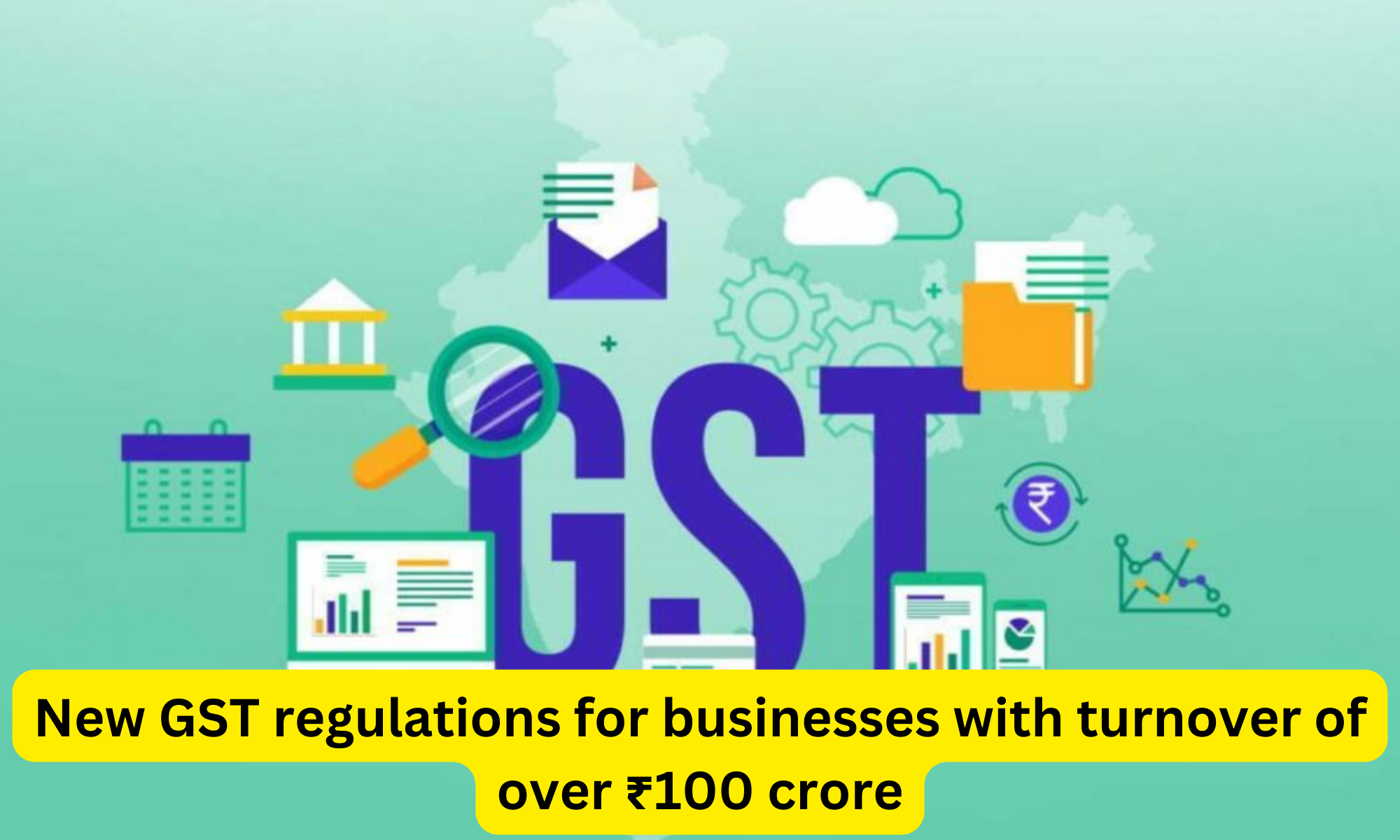New GST regulations for businesses with turnover of over ₹100 crore
Starting from May 1, 2023, businesses with an annual turnover of Rs 100 crore or more will be required to abide by a new GST rule. This rule mandates the uploading of electronic invoices on the Invoice Registration Portal (IRP) within seven days of their issue. The IRP is utilized to validate that these invoices are actually genuine and to assign them a unique Invoice Reference Number for GST purposes.
Buy Prime Test Series for all Banking, SSC, Insurance & other exams
New GST regulations for businesses: Key Points
- This new rule replaces the current system in which businesses upload the invoices on the IRP on the day on which they are issued, regardless of their actual issue date.
- The GST Network (GSTN) has issued an advisory to taxpayers regarding this development, stating that the government has decided to impose a time limit for reporting old invoices on the e-invoice IRP portals for those companies with an aggregate annual turnover equal to or greater than Rs 100 crore.
- Therefore, companies subject to this rule must ensure that they upload invoices promptly to comply with the new requirements.
- According to GSTN, this restriction will only be applicable to invoices and there will be no time restrictions imposed on the reporting of debit/credit notes.
- For instance, if an invoice has a date of April 1, 2023, it must be reported by April 8, 2023, as the system will not allow reporting after the 7-day window.
Therefore, taxpayers must ensure that they report the invoice within the given time frame as they cannot avail the Input Tax Credit (ITC) if the invoice is not uploaded on the Integrated Reporting Portal (IRP).
India and Russia to Explore Acceptance of RuPay and Mir Payment Cards for Cross-Border Transactions
What are the current rules for GST on buisnesses?
- Currently, businesses with a turnover of ₹10 crore and above are mandated to generate electronic invoices for B2B transactions. Companies with a turnover of over ₹500 crore were initially required to generate B2B e-invoices, which was later extended to those with a turnover of over ₹100 crore effective January 1, 2021.
- From April 1, 2021, businesses with a turnover of over ₹50 crore generated B2B e-invoices, and from April 1, 2022, the threshold was further lowered to ₹20 crore.
- As of October 1, 2022, the threshold was reduced to ₹10 crore.
- Tax officers detected GST evasion worth over ₹1.01 lakh crore in the just-concluded fiscal year, almost double the amount from the previous year.
- The Directorate General of GST Intelligence (DGGI) recovered ₹21,000 crore during the same period.
The government is utilizing data analytics and human intelligence to identify fraud while taking steps to increase compliance. The official stated, “In 2022-23, the DGGI officers detected evasion amounting to ₹1,01,300 crore, with a recovery of ₹21,000 crore made.” In the prior year, the DGGI uncovered over ₹54,000 crore in evasion and recovered more than ₹21,000 crore in taxes. In 2022-23, approximately 14,000 GST evasion cases were detected, up from 12,574 in 2021-22 and 12,596 cases in 2020-21.
Also Read: India’s manufacturing PMI at 4-month high in April on output & new orders’ growth
Find More News on Economy Here




 Legendary Bengali Author Shankar Passes ...
Legendary Bengali Author Shankar Passes ...
 List of Dadasaheb Phalke Award Winners f...
List of Dadasaheb Phalke Award Winners f...
 Which Dance Form is known as the Ballad ...
Which Dance Form is known as the Ballad ...








